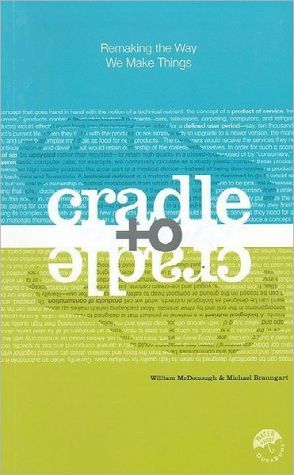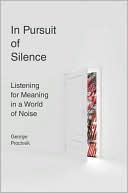Normal Accidents: Living with High Risk Technologies
Normal Accidents analyzes the social side of technological risk. Charles Perrow argues that the conventional engineering approach to ensuring safety—building in more warnings and safeguards—fails because systems complexity makes failures inevitable. He asserts that typical precautions, by adding to complexity, may help create new categories of accidents. (At Chernobyl, tests of a new safety system helped produce the meltdown and subsequent fire.) By recognizing two dimensions of risk—complex...
Search in google:
"A noted Yale sociologist examines how and why catastrophic accidents occur in high-tech industries—nuclear power, petrochemical, and aerospace—and argues that they are becoming nearly inevitable in" New York Times - Lawrence Zuckerman Mr. Perrow found that the organizations designed to run and safeguard modern technology were so complex and so tightly integrated that accidents are inevitable, or ''normal,'' even when all the proper safety procedures are followed. Thus, disasters like the near-meltdown of the nuclear reactor at Three Mile Island in Pennsylvania and the explosion of the Space Shuttle Challenger cannot be traced to discrete errors or blamed solely on ''operator error,'' as has been the typical approach in the past. They are the natural result of the systems themselves. They are accidents that are inconceivable -- until they happen.
Abnormal BlessingsIntroduction31Normal Accident at Three Mile Island152Nuclear Power as a High-Risk System: Why We Have Not Had More TMIs - But Will Soon323Complexity, Coupling, and Catastrophe624Petrochemical Plants1015Aircraft and Airways1236Marine Accidents1707Earthbound Systems: Dams, Quakes, Mines, and Lakes2328Exotics: Space, Weapons, and DNA2569Living with High-Risk Systems304Afterword353Postscript: The Y2K Problem388List of Acronyms413Notes415Bibliography426Index441
\ Technology Review[Perrow's] research undermines promises that 'better management' and 'more operator training' can eliminate catastrophic accidents. In doing so, he challenges us to ponder what could happen to justice, community, liberty, and hope in a society where such events are normal.\ — Deborah A. Stone\ \ \ \ \ The New York Times[Normal Accidents is] a penetrating study of catastrophes and near catastrophes in several high-risk industries. Mr. Perrow ... writes lucidly and makes it clear that 'normal' accidents are the inevitable consequences of the way we launch industrial ventures.... An outstanding analysis of organizational complexity.\ — John Pfeiffer\ \ \ NatureNormal Accidents is a testament to the value of rigorous thinking when applied to a critical problem.\ — Nick Pidgeon\ \ \ \ \ The New York Times\ - John Pfeiffer\ [Normal Accidents is] a penetrating study of catastrophes and near catastrophes in several high-risk industries. Mr. Perrow ... writes lucidly and makes it clear that 'normal' accidents are the inevitable consequences of the way we launch industrial ventures.... An outstanding analysis of organizational complexity.\ \ \ \ \ Technology Review\ - Deborah A. Stone\ [Perrow's] research undermines promises that 'better management' and 'more operator training' can eliminate catastrophic accidents. In doing so, he challenges us to ponder what could happen to justice, community, liberty, and hope in a society where such events are normal.\ \ \ \ \ Nature\ - Nick Pidgeon\ Normal Accidents is a testament to the value of rigorous thinking when applied to a critical problem.\ \ \ \ \ The New York Times[Normal Accidents is] a penetrating study of catastrophes and near catastrophes in several high-risk industries. Mr. Perrow ... writes lucidly and makes it clear that 'normal' accidents are the inevitable consequences of the way we launch industrial ventures.... An outstanding analysis of organizational complexity.\ — John Pfeiffer\ \ \ \ \ Lawrence ZuckermanMr. Perrow found that the organizations designed to run and safeguard modern technology were so complex and so tightly integrated that accidents are inevitable, or ''normal,'' even when all the proper safety procedures are followed. Thus, disasters like the near-meltdown of the nuclear reactor at Three Mile Island in Pennsylvania and the explosion of the Space Shuttle Challenger cannot be traced to discrete errors or blamed solely on ''operator error,'' as has been the typical approach in the past. They are the natural result of the systems themselves. They are accidents that are inconceivable -- until they happen. \ — New York Times\ \ \ \ \ Wade RoushOn the other hand, we may have simply postponed the kind of debacle that would force us into a reexamination of complex, hazardous technologies such as nuclear power. In particular, the increasing ubiquity of the Internet, to which every thermostat and sprinkler system in the world may soon be linked, is creating the potential for an epidemic of computer viruses or other disruptions on an unprecedented scale. There will never be another year 2000, but I suspect this won't be the last edition of Normal Accidents.\ — Technology Review\ \








